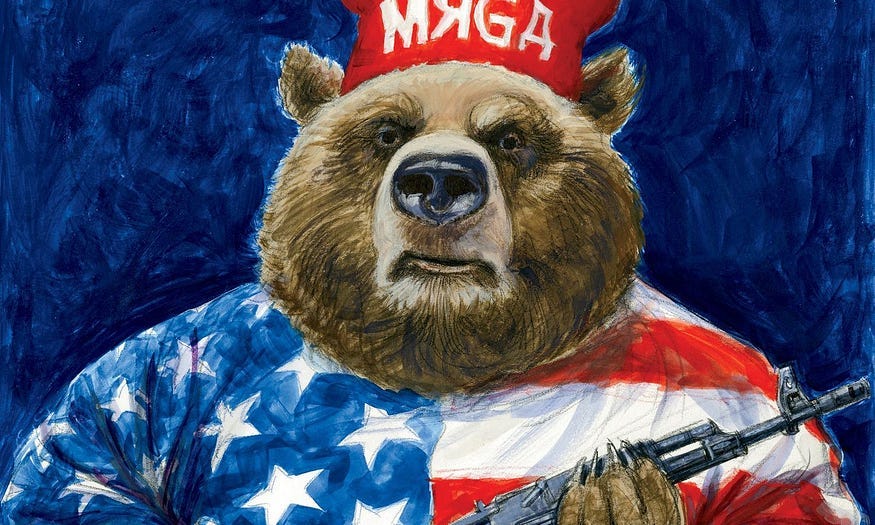Advancing Russian Interests
The Unintended Consequences of Trump and MAGA
While Trump and the MAGA movement advocate for “America First” policies, their actions often inadvertently align with Russian strategic goals. By undermining trust in U.S. institutions, increasing societal polarization, and questioning key alliances, they contribute to a landscape that benefits Russia at the expense of American stability and global influence.
Undermining Trust in Institutions
Trump and MAGA have frequently attacked the media, judiciary, and electoral processes. This constant erosion of trust in key democratic institutions weakens the very foundation of American democracy. The skepticism sown among the public can lead to a lack of faith in the government’s ability to function effectively, creating internal instability that adversaries like Russia can exploit.
Increasing Polarization
The divisive rhetoric and policies promoted by Trump and MAGA have significantly heightened political and social polarization in the United States. This polarization is beneficial to Russian interests, as it distracts and debilitates the U.S. from projecting unity and strength on the global stage. The more divided a society, the easier it is for external actors to manipulate and control narratives to their advantage.
Questioning Key Alliances
Trump’s consistent criticism of NATO and other international alliances undermines the cooperative structures that have historically countered Russian influence. By casting doubt on the value and reliability of these alliances, Trump weakens the collective security that has been a cornerstone of Western defense strategy against Russian aggression. This isolationist stance plays directly into Russia’s strategic objective of diminishing U.S. influence in global affairs.
The Russian Strategic Playbook
Russia’s long-term strategy includes destabilizing Western democracies and reducing U.S. influence worldwide. The tactics employed by Trump and MAGA align with several key components of this playbook:
Disinformation and Propaganda: Amplifying false narratives and undermining factual reporting.
Political Manipulation: Supporting fringe groups and candidates that promote divisive policies.
Cyber Warfare: Exploiting vulnerabilities in democratic processes to sow discord and confusion.
Conclusion
While the “America First” agenda may resonate with many of Trump’s supporters, the broader implications of this approach often advance Russian interests. By eroding trust in democratic institutions, deepening societal divides, and weakening international alliances, Trump and MAGA’s actions inadvertently contribute to a geopolitical landscape that favors Russia over the United States. Recognizing and addressing these consequences is crucial for safeguarding American democracy and maintaining global stability.


